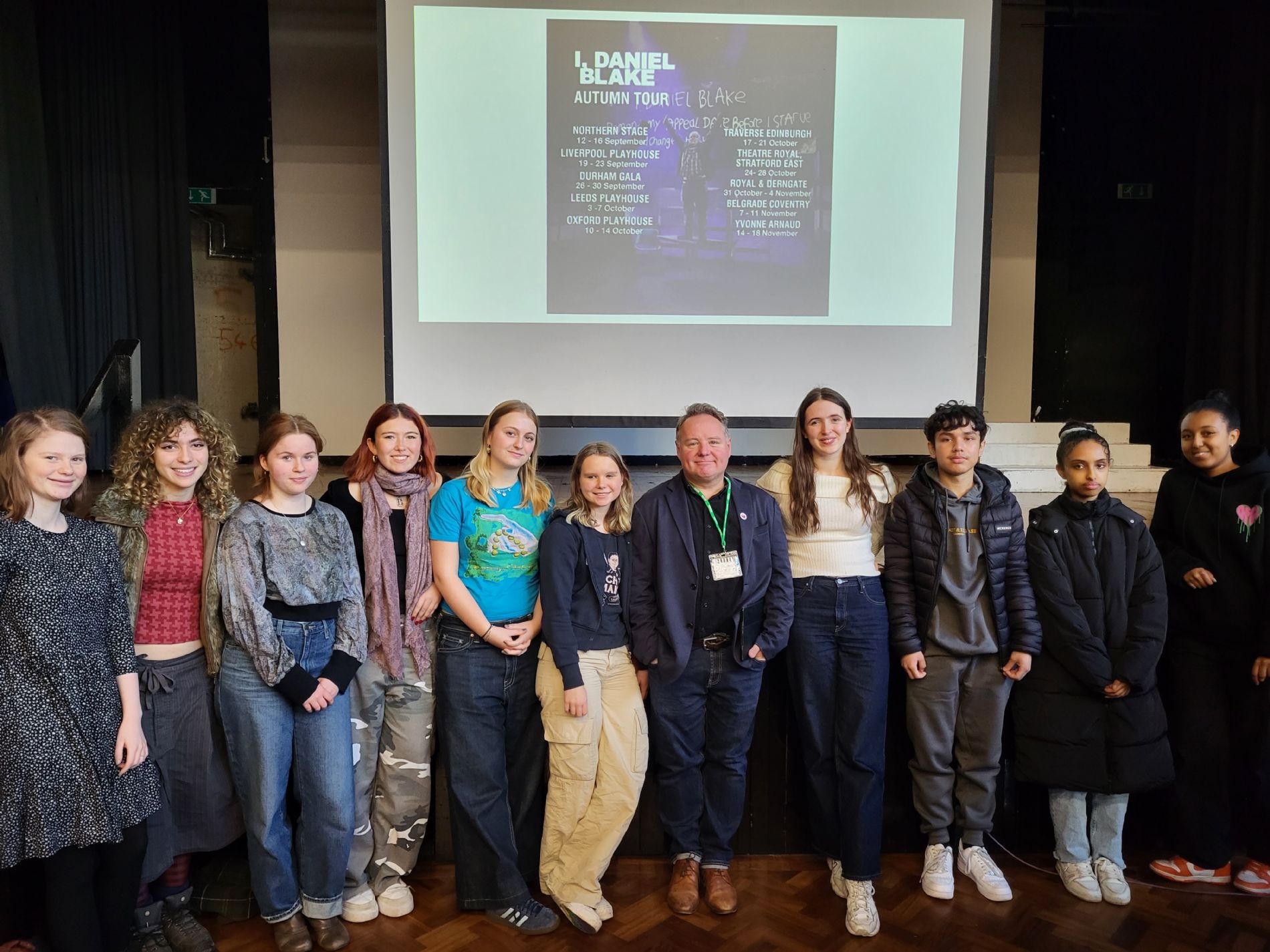Assembly Speaker - 6 November
David Nellist - actor
What does it mean to be successful and how do you get there?
David Nellist gave an incredible speech in the assembly about his life and journey as an actor. From graduating in 1991 he has acted for 32 years in everything from theatre, tv, radio and film.
His story began with his drama teacher, Chris Heckles. Neither of his parents had been through higher education and, likewise, Nellist did not plan to. Heckles invited him to do a play and saw something in him and at parents' evening, she suggested a 7 year plan through A-levels and drama school, to become an actor.
Nellist followed this almost to a T. With the support of his parents and Drama teacher behind him, he had the courage to move 300 miles to London to The Rose Bruford. Here, he felt like an outsider, as a working class kid from Newcastle, despite his fear, he auditioned and completed his 3 year bachelors arts degree.

In school, he was told by the career advisor that 9/10 actors are out of a job at any one moment. Challenges such as these he ignored and persevered through. Once he graduated, he went for an audition with a Northumberland theatre company. Afterwards, the director called him back, immediately telling them that he got the job. This was the highest point of joy in his career. It was not a glamorous job, touring around England in the back of a van. Now, he was officially an actor. Chris Heckles, was right, he did have something.
His journey did not end here. Once someone has shown faith Nellist describes the importance of putting in the hard work. There are thousands of talented actors, so what can you uniquely bring as an individual? This applies to any job. You must give what you hope to get. So to be surrounded by nice people who are hard working and on time, this is what you must give.
From here, Nellist got an agent as his career progressed. With each new job came new experiences and challenges. From getting to fly in a hot air balloon to learning how to learn lines and transforming into a new character with each job. As an actor it is important to be constantly open minded with your learning to understand each different character you play and their differences to you, down to the smallest detail. To do this he must immerse himself in the character and by doing so he often befriends the people he plays.
Throughout his career, he acted as Mike Stamford with Martin Freeman and Benedict Cumberback in Sherlock Holmes, The Gambling Man, The Bull and many more. Acting on Coronation Street was a highlight as it was his mum’s favourite show. She was so proud and he felt he had finally made it. Nellist’s greatest joy lies in theatre, the immediacy of it with the audience right in front of you. From travelling in touring theatre where it can be lonely but he found his family on the road. Repertory theatre, where he performed in one city for a period of time, immersing himself in new environments. Finally, West End theatres, first ever of which was Billy Elliot. Here there were 5 billy’s who acted. One of them could sing, dance and act all at once and he had a passion. This boy was Tom Holland. Through his career Nellist has made lifelong friends and connections, some of whom he plays football with in Cantelowes Park on Mondays. He has accomplished incredible achievements and inspired me with his story.
If someone wants to be an actor for the red carpets and the glamour and glitz, they won't be successful. But if you want to tell a story? If you had nothing else and would you still want to act? That's how you know you have the makings of an actor. When you can make a career out of something you love, that's how you know you're successful.
Skye
Senior Prefect
Q&A:
- Did you ever do work for hackney town hall?
Nellist worked part time there and married one of the students' parents in 2013!
- How do you remember all your lines?
There is no trick or easy way to learn. He needs to know exactly who the character is so it would be illogical to say anything other than the lines the character says. Furthermore, Hard work and memory is necessary.
- What has been your favourite role and why?
Fond of Daniel Blake, his current role. He has befriended his character. There are elements of Blake which Nellist describes to be better than himself, patient and kinder. There is a lot that can be learnt from a character.
- Do you prefer being good or bad guys?
He hasn't been cast as many bad guys. Even in Bull where he is a villain, he says sorry. But he would like to play more villainous roles.
- Do you find characters you play evolve over the time you play them?
The answer was yes. If you take a video of the first and last play it changes dramatically over time. In order to keep a performance fresh he tries small new things each time.